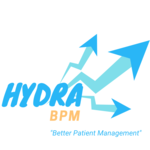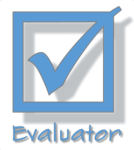Yes, decision support software is intended to be accessible from different devices and platforms. This enables users to access the software and make informed decisions from anywhere and at any time. Decision support software is easily accessible from any desktop computer, laptop, tablet, or smartphone.This adaptability enables a more efficient and collaborative decision-making process, regardless of the user's location or preferred device.
List of 20 Best Decision Support Software
QVISTORP is an all-encompassing decision support software that simplifies growth planning with its strong tools and methodologies. Our intuitive platform enables businesses to efficiently transform their strategies into tangible results. Uncover the...Read More QVISTORP
FICO Blaze Advisor is a decision support software for industries such as insurance, travel, retail and automotive. This user-friendly software comes with extensive training options through webinars, online sessions, and comprehensive documentation. W...Read More FICO Blaze Advisor
Best Offer Advisor, our leading software, offers exclusive features including real-time market updates, customized deal recommendations, and seamless integration with various platforms. Its user-friendly interface and sophisticated algorithms guarant...Read More Best Offer Advisor
AVDecision is a highly versatile and trusted software designed to fulfill diverse requirements. With a solid reputation for reliability and credibility, it empowers businesses and institutions to make well-informed decisions efficiently and accuratel...Read More AVDecision
EIDOS is a decision support system for your organization. With our extensive software, we offer expert guidance and training through a variety of resources including online tools, live sessions, and personal consultations. Unlock the full potential o...Read More EIDOS
Expert Choice - tool designed to streamline decision-making processes. With its transparent and productivity-boosting features, teams can efficiently prioritize tasks and align decisions with stakeholder needs. Gain clarity and make smarter choices t...Read More Expert Choice
GoldSim - the leading software for quantitative analysis that empowers decision makers with advanced tools to mitigate risks and uncertainties in a constantly evolving world. Used by businesses and government organizations worldwide, GoldSim is an ad...Read More GoldSim
CoSupport AI - an advanced AI-driven software designed for customer support and business intelligence. With our patented technology, you can expect faster and more precise outcomes, all while saving on costs and ensuring security. Empower your custom...Read More CoSupport AI
Prime Dash - the groundbreaking banking solution that transforms credit analysis and financial monitoring into a real-time process. With state-of-the-art AI and machine learning capabilities, institutions can now make efficient and data-driven decisi...Read More Prime Dash
TrustCheckr is a software that utilizes advanced technology to provide robust data enrichment, fraud detection, identity verification, default prediction, and purchase propensity scoring solutions. Our services cater to the specific needs of the Fina...Read More TrustCheckr
Mercur Business Control - software that streamlines budgeting, forecasting, reporting, and analysis for businesses. Designed to seamlessly integrate with ERP systems, Mercur provides accurate data for strategic decision-making and supporting business...Read More Mercur Business Control
AsinSeed - a keyword tool for Amazon sellers. This powerful tool allows sellers to uncover the top performing keywords for their specific ASIN, find the most relevant keywords for their products, and optimize their listings and PPC campaigns for maxi...Read More AsinSeed
Hydra BPM is a cloud-based solution for patient and care management in the home healthcare industry. Our innovative decision-making models make it a preferred choice for healthcare consulting firms and data analytics companies. Transform your operati...Read More Hydra BPM
MADe is a decision-making software for engineers. Our cutting-edge technology allows for efficient identification and mitigation of functional issues and technical risks in your engineering projects. With comprehensive written documentation and perso...Read More MADe
Simulation Master is a simulation software for business professionals and educators. Featuring advanced simulations, a user-friendly interface, and robust analytical capabilities, it empowers users to make better decisions, enhance productivity, and...Read More Simulation Master
QuickScore Balanced Scorecard, the efficient online solution for optimizing your balanced scorecard process. With a user-friendly interface and advanced features like custom reports, real-time alerts, and visual strategy maps, QuickScore streamlines...Read More QuickScore Balanced Scorecard
POPin, the innovative decision-making tool designed to gather genuine feedback from your team. Empower your organization to identify effective solutions with the help of POPins advanced features. In addition, leverage live polls and surveys to collec...Read More POPin
the DecisionTools Suite solution for analyzing uncertainties in your business. Our comprehensive software offers robust features such as data analysis, decision tree analysis, and sensitivity analysis, along with Monte Carlo Simulation for effective...Read More DecisionTools Suite
Evaluator is an effective and adaptable software that enhances your decision-making by offering a uniform scoring system to evaluate comparable options. It empowers you to make educated decisions quickly and effortlessly. With its robust capabilities...Read More Evaluator
KestrelPro solution for businesses seeking informed decisions. With detailed reports, track project budget forecasting and resource availability. Obtain a holistic view of your organizations health, from macro to micro level. Empower your business to...Read More KestrelPro
Learn More About Decision Support Software
- What Is Decision Support Software?
- What Are The Recent Trends In Decision Support Software?
- Benefits Of Using Decision Support Software
- Important Factors To Consider While Purchasing Decision Support Software?
- What Are The Key Features To Look For In Decision Support Software?
- Why Do Businesses Need Decision Support Software?
- How Much Time Is Required To Implement Decision Support Software?
- What Is The Level Of Customization Available In Decision Support Software?
- Which Industries Can Benefit The Most From Decision Support Software?
- Conclusion
What Is Decision Support Software?
A sort of computer program called decision support software, or DSS, gives people or organizations the data and analysis capabilities they need to make decisions. For professionals and enterprises who need to make data-driven choices quickly, it is a vital tool. Data management, analytical and mathematical tools, forecasting and modeling capabilities, and sophisticated visualization choices are some of the essential components of decision support software.
With the help of these tools, users may gather, arrange, and evaluate vast volumes of data from many sources in order to gain understanding and make wise choices. Numerous industries, including marketing, supply chain management, healthcare, and finance, might benefit from the usage of decision support software. It can help with activities including resource allocation, demand forecasting, risk management, and financial planning and analysis.
The capacity of decision support software to manage dynamic and complicated data sets makes it more accurate and efficient than conventional techniques, which is one of its main benefits. Additionally, it allows users to evaluate the possible outcomes and compare various scenarios, giving them a more thorough understanding of the decision-making process.
Additionally, certain decision support software allows teams to collaborate and update data in real time, even when they are located far away. Because of this, it's a useful tool for companies that have several teams and departments working on the same project. The user interface and ease of use, compatibility with current systems, customer support and training choices, and security standards are some things to consider when buying decision support software. Purchasing dependable and trustworthy decision support software is essential if you want to guarantee the integrity and correctness of your data and decision-making procedure.
What Are The Recent Trends In Decision Support Software?
Decision assistance software has become more and more popular in recent years among companies of all kinds and sectors. This is explained by the growing significance of data-driven decision making as well as technological developments that have increased the usability and accessibility of such applications. Consequently, there are a number of new trends in this market that consumers should be aware of before making a purchase.
The first trend is the incorporation of machine learning (ML) and artificial intelligence (AI) into decision support software. This enhances the speed and precision of decision-making processes by enabling the automation of certain tasks like data analysis, forecasting, and scenario planning. Furthermore, these systems' capacity for learning and adaptation enables them to offer users more pertinent and individualized information.
The shift to cloud-based solutions is another trend. Cloud-based decision support software provides the flexibility and scalability to manage enormous datasets and fast access to information from anywhere in the globe, which is necessary given the growing volume of data being generated and the requirement for real-time decision making. This enables cost savings and enhanced teamwork by doing away with the requirement for on-premise infrastructure.
Mobile-friendly decision assistance software is becoming more and more popular as remote work becomes more common. This eliminates the need for a desktop or laptop and enables users to access the program and make decisions while on the go. Additionally, real-time notifications and updates are made possible by mobile capabilities, guaranteeing that decision makers always have the most up-to-date information available.
Decision assistance software is also getting easier to use and more intuitive. As workplaces become more technologically advanced, businesses are looking for software that is simple to use and requires less training. Self-service tools and more aesthetically pleasing interfaces have been developed as a result of this trend, which has made decision-making easier for non-technical users. Finally, data security and privacy are becoming more and more important.
Data protection becomes increasingly important as firms gather more information. To guarantee data availability, confidentiality, and integrity, decision support software companies are making significant investments in strong security measures.
Benefits Of Using Decision Support Software
A strong and necessary tool for companies and organizations of all kinds is decision support software. This kind of software acts as a virtual advisor, offering insightful advice and direction for decision-making. Purchasing decision support software can benefit users in many ways, which will ultimately increase operational effectiveness and profitability. The following are some main advantages of utilizing decision support software:
1. Thorough Data Analysis: The capacity of decision support software to quickly examine sizable and intricate data sets is one of its key benefits. This program can swiftly analyze and display data in an understandable and interpretable manner thanks to sophisticated algorithms and data visualization features. This makes it possible for decision-makers to base their choices on precise and pertinent information.
2. Improved Decision-Making: Decision support software lets users evaluate possible outcomes of their choices before making them by offering real-time feedback and forecasting capabilities. This lowers the possibility of making bad or ignorant decisions, resulting in more sensible and successful choices.
3. Enhanced Productivity: Organizations can reduce the time and effort needed for manual data analysis by streamlining their decision-making processes with the help of decision support software. Employees are able to concentrate on more important jobs and initiatives, which boosts total productivity.
4. Cost Savings: Businesses can find ways to cut costs and make data-driven decisions that can lower costs and boost profitability by utilizing decision support software. Additionally, this software can enhance resource allocation, assisting companies in optimizing their resources.
5. Improved Strategic Planning: Predictive analytics and insightful information from decision support software can help with forecasting and strategic planning. This enables companies to foresee upcoming trends and obstacles and create successful plans to meet their objectives.
6. Increased Operational Efficiency: Organizations can increase operational efficiency by streamlining their workflows and procedures with the use of decision support software. Faster product and service delivery, higher customer happiness, and more market competition are all possible outcomes of this.
Important Factors To Consider While Purchasing Decision Support Software?
"It's critical to thoroughly weigh your options before investing in decision assistance software to make sure it's a smart move for your company. Selecting the appropriate software is essential for optimizing workflows and raising overall productivity because this kind of software is made to offer insightful analysis and insights to support decision-making. The following crucial elements should be taken into account when buying decision support software in order to assist you in making an informed choice:
1. Business Needs: Clearly defining your company's needs and determining which areas require assistance is the first step. This will assist you in reducing your selections and selecting software that satisfies your unique needs.
2. Features And Functionality: To make sure the software meets your business demands, it is essential to carefully examine its features and functionality. To get the most out of the software, look for capabilities like predictive analytics, dashboard customization, and data visualization.
3. User-Friendliness: All users in your company should be able to easily utilize and comprehend the program. Steep learning curves or complicated interfaces may cause resistance or underuse of the program, which would reduce its usefulness.
4. Compatibility And Integration: Verify that the program can easily interface with and work with your current systems. In the long term, this will guarantee seamless data transfer between systems and save you time and money.
5. Data Security: Because company data is sensitive, it is essential to be sure the software has strong security features in place to shield your data from online attacks. To evaluate the software's security capabilities, look for security certifications and read user evaluations.
6. Scalability: Your decision support software should be able to grow with your company and change to meet your evolving needs. Make sure the software you select is scalable and capable of accommodating the expansion of your company in the future.
7. Customer Support: Seek out a supplier who provides trustworthy customer service and support. This is essential in the event that you run into problems or require assistance with efficiently utilizing the software. When buying decision support software for your company, you can make an informed choice by taking these things into account. Before deciding, don't forget to read reviews, evaluate features and costs, and take advantage of free samples or demonstrations. You may improve business outcomes and expedite your decision-making process with the correct decision assistance software.
What Are The Key Features To Look For In Decision Support Software?
There are a few essential elements to take into account when selecting the best decision support software for your company. Your ability to make important business decisions quickly and effectively can be greatly impacted by these qualities. Knowing what these features are can help you make an informed choice as a buyer.
1. Data Management And Integration: Combining and analyzing data from many sources is one of the primary purposes of decision support software. Choose software that can be easily integrated with the databases and systems you already have. In order to handle massive amounts of data and guarantee its quality and consistency, it needs also possess strong data management skills.
2. Advanced Analytics: Precise and perceptive data analysis is essential to sound decision-making. Verify that the software you select has sophisticated analytical features including descriptive, prescriptive, and predictive analytics. This will enable you to obtain important insights and confidently make data-driven decisions.
3. Reporting And Visualization: Not all members of your business are adept at deciphering and analyzing complicated data. Features for reporting and visualization are useful in this situation. Seek out software that makes it simple to display data in interactive, aesthetically pleasing formats like dashboards, maps, graphs, and charts. Non-technical consumers will find it simpler to comprehend and evaluate data as a result.
4. Scenario Planning: One essential component of decision assistance software is the capacity to model various situations and forecast their results. This enables you to experiment with various tactics and base your choices on the possible outcomes of each situation.
5. Cooperation And Sharing Capabilities: Effective decision-making requires cooperation and input from a range of team members. Seek software that facilitates real-time sharing and collaboration so that team members may cooperate and exchange ideas and suggestions.
6. Customization & Scalability: Every company has different needs and demands. Verify that the program you select may be altered to meet your unique requirements. Additionally, it should be scalable as your company expands, handling expanding user needs and data volumes.
7. Security And Data Privacy: Security and data privacy ought to be of utmost importance due to the volume of sensitive data used in decision-making. To guarantee the protection and privacy of your data, look for software that provides strong security features like encryption, user access limits, and frequent data backups. You can ensure that your company has the resources it needs to make wise and significant decisions by taking these important factors into account when selecting your decision support software. To locate the ideal fit for your company, keep your budget and unique business requirements in mind.
Why Do Businesses Need Decision Support Software?
Businesses require decision support software to efficiently analyze and interpret large volumes of data, make informed decisions, and remain competitive in today's market. This powerful tool gives significant insights and recommendations to help guide crucial decision-making processes, allowing firms to make confident strategic and data-driven decisions.
One of the primary benefits of employing decision support software is its capacity to collect data from a variety of sources and convert it into understandable visuals and reports. This allows firms to gain a comprehensive perspective of their operations, detect patterns and trends, and unearth possible opportunities or obstacles. Furthermore, decision support software includes advanced tools like predictive analytics and what-if scenario analysis, which enable firms to test multiple strategies and evaluate their potential outcomes before implementing them.
This reduces risks and improves decision-making by offering insight into the future consequences of various options. Furthermore, decision support software is intended to be user-friendly, making it accessible and valuable to employees at all levels of the business. Its user-friendly interface and interactive dashboards enable quick and efficient data analysis, freeing up time and resources for other important activities.
In today's data-driven environment, gut intuition and guesswork are no longer sufficient for decision-making. Businesses can gain a competitive advantage by using decision support software to make informed decisions based on reliable data and insights. This not only enhances overall business performance, but it also aids in finding growth prospects and staying ahead of the competitors in a changing market.
To summarize, decision support software is a critical tool for every firm that wants to remain data-driven, competitive, and successful in today's fast changing market. It provides businesses with reliable data and insights, accelerates decision-making processes, and allows them to confidently make strategic decisions. Investing in decision support software is a wise decision for any organization trying to grow in the long run.
How Much Time Is Required To Implement Decision Support Software?
When considering deploying decision assistance software, the most prevalent question is, "How much time will it take?" While the answer will vary depending on the product and your organization's requirements, there are a few crucial considerations. The first thing to examine is the complexity of the decision support software.
Some solutions have a simple and easy user interface, while others may necessitate significant customization and integration with current systems. Generally, the more sophisticated the software, the longer the installation process will be. Another important thing to examine is if the program is cloud-based or on-premises. Cloud-based solutions are often faster to adopt because they do not require any hardware or infrastructure setup.
On the other hand, on-premise solutions may necessitate more time and resources for installation and implementation. Additionally, the size and structure of your organization have a considerable impact on the implementation timeline. Larger firms with more comprehensive data and complicated decision-making processes may take longer to successfully integrate the program.
In contrast, smaller organizations may have a shorter implementation schedule. The readiness of your organization to implement the software is also an important consideration. It is critical to ensure that your team has the requisite skills and training to use the program successfully. Furthermore, having a clear implementation plan and ensuring everyone is on the same page can have a big impact on the schedule.
Finally, the availability of resources, such as time and budget, might influence the implementation process. To ensure successful implementation, a realistic timeframe and adequate resources must be established. In general, implementing decision support software can take anywhere from a few weeks to a few months, depending on the considerations listed above. To achieve a seamless and timely installation, you must collaborate closely with the software vendor and have a thorough understanding of your organization's requirements.
What Is The Level Of Customization Available In Decision Support Software?
Customization is an important feature to consider when comparing decision support tools. This refers to the software's capacity to be customized to meet the unique requirements and processes of a certain business or industry. When it comes to decision-making, one-size-fits-all approaches are rarely effective. Each organization's structure, activities, and goals are distinct, necessitating the use of certain tools and tactics.
The level of customisation available in decision support software varies according to the provider and the functionality provided. Some software may have few to no modification choices, but others have a significant degree of freedom. Before investing in decision support software, you must first analyze its customization options to verify that it meets your needs.
At a basic level, decision support software can be configured to match the user's visual preferences and preferred language. To fully realize the potential of decision support software, firms can employ bespoke dashboards to display critical data and insights. This provides a quick and easy summary of key metrics and performance indicators essential to the organization.
Businesses can also tailor the decision-making process by designing rules and procedures that are particular to their need. This includes establishing approval processes, identifying decision-making hierarchies, and generating milestone checkpoints. Businesses that have control over these processes can ensure that choices are made efficiently and in accordance with their aims.
Another important component of customisation in decision support software is the capacity to interact with other systems and data sources. This allows firms to collect data from multiple sources and combine it with other information, resulting in a thorough analysis for informed decision-making. Furthermore, organizations can tailor the user interface to their existing systems, making it easier for employees to adapt and use the program efficiently.
Which Industries Can Benefit The Most From Decision Support Software?
Decision support software is an effective tool that can help a variety of sectors by speeding decision-making processes and giving useful insights. However, because of their complexity and reliance on data, some businesses can benefit more than others from this software. In this buyer's guide, we'll look at which industries can most benefit from decision assistance software.
1. Finance: In the financial industry, actions can have a big impact on an organization's bottom line. Financial organizations can use decision support software to evaluate large volumes of data, detect trends, and make informed decisions to optimize investments, manage risks, and improve overall performance.
2. Healthcare: The healthcare industry handles a massive amount of data, from patient records to medical studies. Healthcare practitioners can use decision support software to analyze data and create correct treatment plans, manage patient populations, and increase operational efficiency.
3. Manufacturing: In the manufacturing industry, decision-making is critical for optimizing production, lowering costs, and enhancing supply chain management. Decision support software can give manufacturers with real-time information and predictive analytics to help them identify and act on critical decisions rapidly.
4. Retail: In a highly competitive and customer-centric world, decision support software can help retailers better understand their consumers' habits, preferences, and needs. This information can assist merchants in making data-driven decisions to improve customer satisfaction, sales, and profitability.
5. Government: The public sector is in charge of managing massive amounts of data relating to citizens, policy, and finances. Government agencies can use decision support software to analyze this data, discover trends, measure performance, and make informed policy decisions and resource allocations.
Conclusion
In conclusion, decision support software has numerous advantages for enterprises of all sizes. From assisting with strategic decision-making to streamlining procedures and enhancing efficiency, this type of software can significantly improve a company's operations and bottom line. Before buying in decision support software, buyers should thoroughly assess their individual requirements and compare several choices based on key criteria such as features, integrations, pricing, and customer service.
Thorough study and comparison of numerous providers can assist consumers in making an informed selection and selecting the software that best meets their specific requirements. Furthermore, obtaining suggestions from colleagues and reading reviews from other users can provide useful information about the effectiveness and dependability of various decision assistance tools. Businesses can achieve a competitive advantage in their market by carefully selecting and implementing the appropriate decision support software.
Decision Support Software FAQ's
Can Decision Support Software Be Accessed Across Multiple Devices And Platforms?
Is Decision Support Software Future-Proof And Adaptable To Emerging Technologies Like Ai, Blockchain or Iot?
Yes, decision support software is intended to be future-proof and adaptable to new technologies like AI, blockchain, and IoT. These technologies are continually changing, and decision support software is designed to interface with and leverage their capabilities.
This keeps the software relevant and enables organizations to make educated decisions in a continuously evolving technology context. Furthermore, decision support software is frequently updated and changed to keep up with the latest innovations, making it a dependable and adaptable tool for decision-making.
Is There A Free Trial Offered To Assess Decision Support Software Before Committing?
Yes, many decision support software suppliers provide free trials to prospective clients. This enables customers to evaluate the software's capabilities, user interface, and general efficacy before committing. The free trial period can vary, but it normally lasts 14 to 30 days. During this time, users can test the software's capabilities and make an informed decision about whether to invest in it for their firm.
Does Decision Support Software Offer Data Security Features And Meet Regulatory Compliance Standards?
Yes, most decision support software has advanced data security safeguards that protect critical information from unauthorized access or change. They also follow numerous legal standards, including HIPAA and GDPR, to ensure data protection, integrity, and availability.
These characteristics include data encryption, user authentication, audit trails, and secure data storage. With decision support software, you can store and analyze data with confidence while maintaining security and compliance.
Can Decision Support Software Integrate Seamlessly with Existing Tools And Platforms?
Yes, most modern decision support software is designed to work easily alongside existing tools and systems. This comprises widely used commercial programs like customer relationship management (CRM) software, enterprise resource planning (ERP) systems, and data analytics platforms.
By connecting with these current technologies, decision support software can harness data from a variety of sources, giving users with comprehensive and accurate information on which to make decisions. This integration results in increased efficiency, production, and overall corporate success.






















